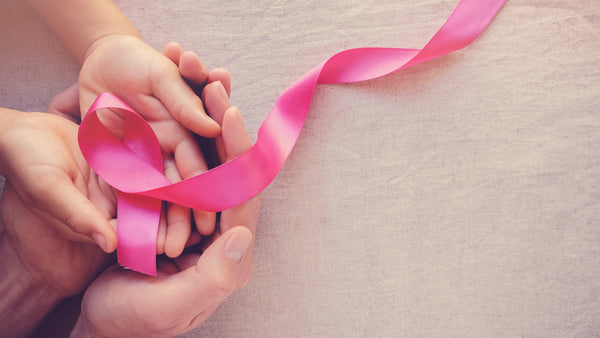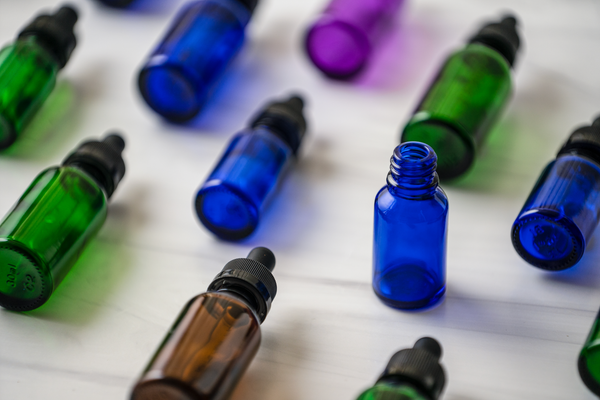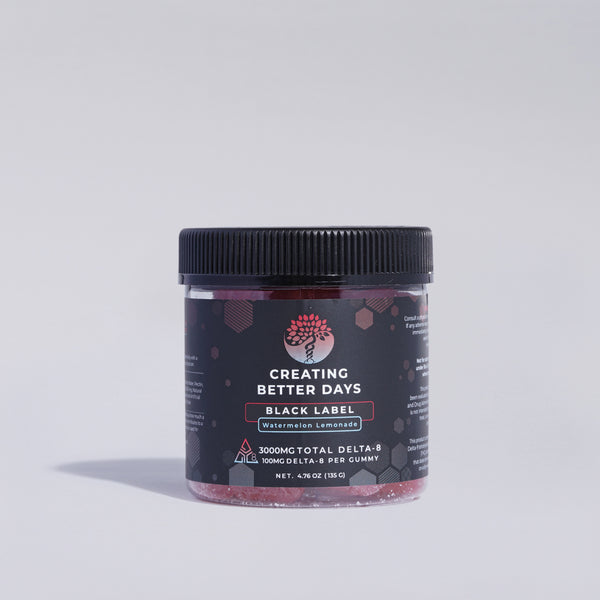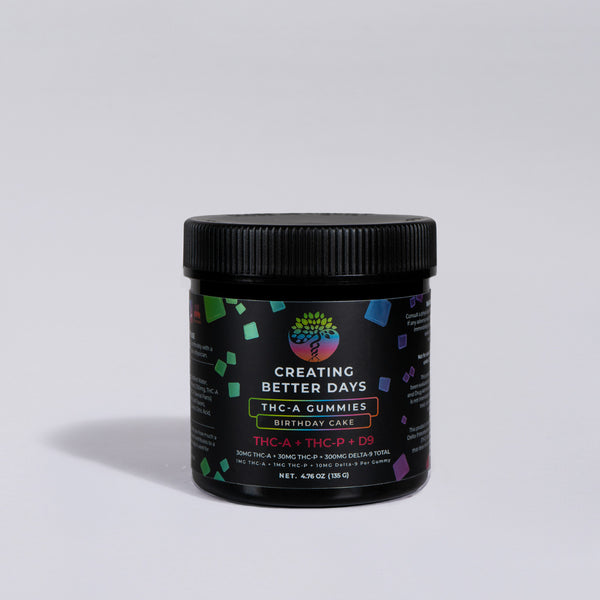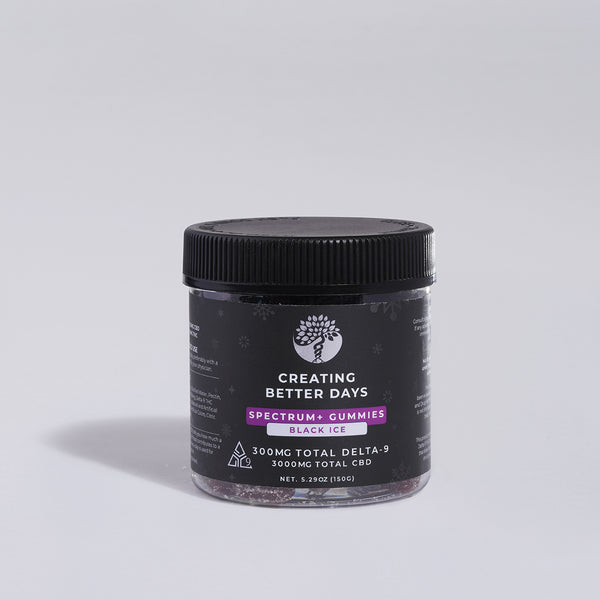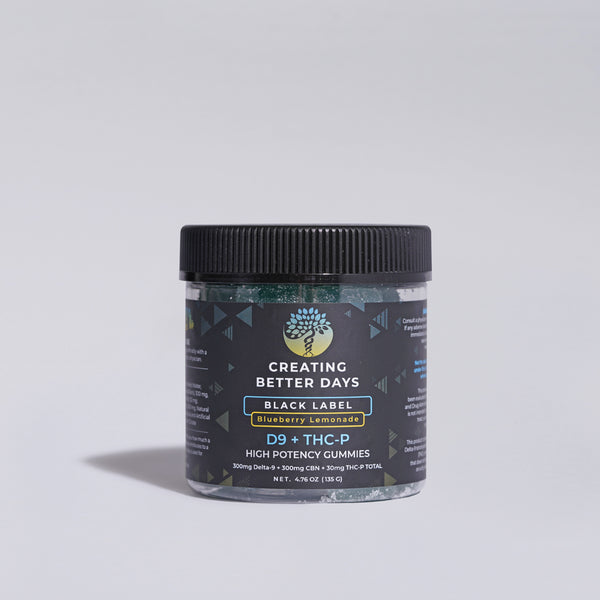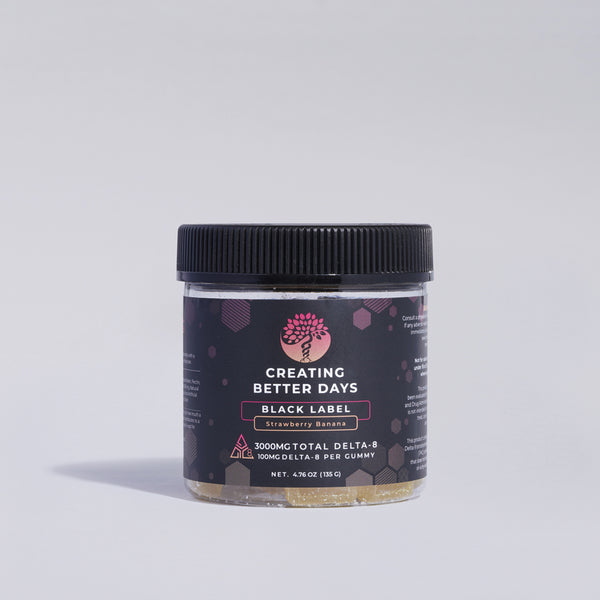
Is THCA the Same as Weed?
If you've been interested in the cannabis industry and CBD products, then you've probably heard one increasingly popular term — THCA. There is no doubt that you may be wondering, "Is THCA the same as weed?" It's a common question that many people ask, especially when they're first introduced to the world of cannabis and cannabinoids. After all, cannabis, weed, THC, THCA—these terms are often thrown around, and the lines can get a little blurry.
There is no similarity between THCA and weed. But that's not the whole story, and to truly understand why, if someone asks, "Are THCA and marijuana the same?" Our response delves into the complexities of traditional weed and why it's important. By the time you finish reading, you'll have a clear understanding of these two and how they interact with your body, your lifestyle, and your cannabis experience.
To get started, let's take a look at the basics.
Table of contents
Key Takeaways
THCA vs. Weed: THCA is a non-psychoactive compound found in raw cannabis, whereas weed typically refers to dried cannabis flowers containing activated THC.
Decarboxylation Process: THCA converts into THC, the psychoactive compound responsible for the "high," only when exposed to heat through smoking, vaping, or cooking.
Cannabis Consumption Options: Consumers can choose between THCA products for a non-psychoactive experience or THC products for more potent effects, depending on their preferences.
Legal Considerations: The legality of THCA and weed varies by location, often depending on the THC content, so it's important to check local regulations.
What is THCA Flower?
First, let's get clear on what the THCA flower is. When you see the word "flower" in the cannabis world, it typically refers to the actual cannabis buds or blooms of the plant that have been harvested, dried, and cured. But when we talk about THCA flower, we're specifically referring to cannabis that contains tetrahydrocannabinolic acid (THCA) in its raw form.
As a precursor to THC, THCA gives you a feeling of being "high." But here's the twist—THCA doesn't give you the high you might be expecting. In fact, THCA is non-psychoactive, meaning that you won't experience the classic euphoric feeling associated with cannabis until it undergoes a transformation process called decarboxylation.
So, what is decarboxylation? When cannabis is heated, a chemical reaction occurs. When THCA is heated—whether you're smoking, vaping, or even baking it in an edible—it loses a carboxyl group (COOH) and turns into THC, the psychoactive compound that binds to the receptors in your brain and creates the "high." This is why THCA flower is essentially raw cannabis—it hasn't yet been heated to activate the THC.
Why Does THCA Flower Matter?
If THCA flower doesn't get you high immediately, you might wonder why people bother with it. Well, there are a few reasons why it's becoming a popular choice for many cannabis consumers.
When you use THCA flower, you won't experience any psychoactive effects from cannabis. Many people prefer cannabis' therapeutic effects without the high, and THCA gives them that option. Others may enjoy experimenting with raw cannabis, especially in the form of raw juice or smoothies, as part of a wellness routine.
Additionally, THCA flowers might appeal to those looking for a more balanced and relaxing experience. While it doesn't have the same potent effects as THC, there are claims that THCA could contribute to a sense of relaxation, calm, and overall wellness without the mind-altering effects of THC.
Let's take a closer look at the role of THCA in the cannabis plant and why it's there in the first place.
THCA's Role in the Cannabis Plant
THCA plays a role in the cannabis plant's natural growth and development. It is synthesized in the resin glands, known as trichomes, found on the flower. These trichomes are sticky, glandular structures that house a variety of compounds, including cannabinoids like THC and CBD, as well as terpenes that contribute to the plant's distinctive aroma and flavor.
Cannabis plants produce many cannabinoids, including THCA, as part of their natural biology. THCA is believed to contribute to the plant's ability to interact with its environment. For example, it may play a role in how the plant responds to various external factors, helping it grow and develop optimally.
When exposed to heat, THCA undergoes a process called decarboxylation, where it converts into THC. This conversion alters the compound's chemical structure, resulting in different properties. Before this process occurs, THCA remains in its raw form, which is distinct from THC.
Overall, THCA is a key component in the cannabis plant's lifecycle, contributing to its ability to thrive in its environment. Its role highlights the plant's natural processes' complexity and the diverse compounds it produces.
How is THCA Produced?
Cannabis plants naturally produce THCA as they grow. The process is a bit more complex, but in simple terms, the plant's genetics and environmental factors, like light and temperature, influence the amount of THCA it produces.
When cannabis is harvested, THCA levels are at their highest. This is when the plant is in its "raw" form, and the THCA has yet to be activated. In order to convert THCA into THC, heat is applied, typically through smoking, vaping, or baking. This heating process breaks down THCA and transforms it into THC, which is what creates the high that people associate with cannabis.
THCA Interaction With Your Endocannabinoid System
Let's now discuss what happens when you consume THCA and how it interacts with your body. THCA and THC in cannabis interact with your endocannabinoid system (ECS). ECS is a network of receptors located throughout the body that regulates bodily functions like mood, digestion, sleep support, and discomfort perception.
THC interacts with the ECS differently than THCA. Cannabis' "high" feeling is caused by THC binding directly to CB1 receptors in the brain. In contrast, THCA has a more subtle potential effect on the ECS. It does not bind to CB1 receptors, so it does not produce the same euphoric effects as THC.
What is Weed?
After we have covered THCA, let's examine what people usually immediately picture when they hear the term weed. Weed typically means the dried, curried, processed cannabis plant. Weed generally contains a high concentration of THC, the "high," unlike THCA, which is not psychoactive at all in its raw form.
When you buy weed, it's often dried marijuana flower that has been dehydrated and dried to be smoked, vaped, or ground up into concentrates. The flower contains both THC and other cannabinoids, along with terpenes that lend the plant its unique smell and taste.
Weed's Chemical Composition
When we talk about weed, the focus is generally on its THC content. The compound THC makes you feel euphoric, relaxed, or even creative. But weed also contains other compounds like CBD, CBG, and terpenes, which can have their own effects on the body. These compounds all work together, and that's what creates the unique experience that people get from smoking or vaping weed.
How Is Weed Produced?
Cannabis plants are grown for weed, which is then dried and cured to preserve its potency and aroma. The plant's flowers are trimmed, and once dried, they are ready to be smoked, vaped, or processed into concentrates. This dried flower is what most people think of when they picture cannabis – the "weed" you smoke or vape.
Unlike THCA, which needs heat to convert into THC, the weed you're used to smoking or vaping already has activated THC, ready to give you that familiar high.
What's the Difference Between THCA and THC?
Now that we've explored THCA and weed let's look at the key differences between THCA and THC—the two major cannabinoids in the cannabis plant.
Chemical Structure
THCA and THC have almost identical chemical structures, but there's one key difference: THCA contains a carboxyl group (COOH), while THC does not. THCA is non-psychoactive because of its carboxyl group. THC is produced when THCA's carboxyl group is removed by heat.
Potential Effects
THCA and THC differ most in their effects. You get high from THC because it is psychoactive. When you use weed that's rich in THC, it binds to the CB1 receptors in your brain, producing the desired effects that it is known for and the altered state of consciousness that people associate with cannabis.
THCA, however, does not produce the same effects. THCA does not bind to CB1 receptors in the brain, so it does not produce a "high." However, it may still have some calming or relaxing properties.
Legality
THC and THCA have different legal statuses. In some areas, THCA is legal because it doesn't contain significant amounts of THC in its raw form. However, THC is often more strictly regulated due to its psychoactive properties. The legality of cannabis products, whether they contain THCA or THC, is still subject to local laws, so it's essential to know the rules in your area.
The Legality of THCA Flower vs Weed
The legal landscape surrounding THCA flower and weed can vary greatly depending on where you live. While THCA flower may be legal in some areas because it's non-psychoactive and contains little THC, a weed that contains THC is still heavily regulated in many places.
To sum up, the legality of THCA vs weed comes down to the amount of THC present. If the product contains more than the legal limit of THC (usually 0.3% in most places), it may be considered illegal. Before purchasing any cannabis-related products, check your local laws.
Where Can You Find the Best Weed and THCA Products Online?
If you're interested in exploring THCA flower or weed products, you can find them online. Many reputable stores, including Creating Better Days, offer a variety of products, from THCA flowers to THC-infused gummies, vapes, and flowers.
Creating Better Days is a great place to start, offering our high-quality, lab-tested products that give you the best of both worlds—THCA for a subtle experience and THC for a full, psychoactive effect.
Gummies
Gummies are a popular way to consume cannabis, whether you want THCA or THC. Cannabinoids are delivered in a precise dose through the gummies, which are easy to take and super satisfying. THCA gummies are perfect for those who want to try this compound without the high, while THC gummies deliver the full experience.
Vapes
If you prefer vaping over smoking, you can find both THCA vapes and THC vapes online. Vaping allows for faster onset of effects and is a great option if you want more control over your cannabis experience.
Flower
For those who enjoy the traditional method of consumption, THCA flower and THC flower are both available. Whether you want to experience the raw, unactivated cannabis with THCA or go for the full effect with THC, both options are accessible.
Final Thoughts – THCA vs Weed
So, is THCA the same as weed? No, they are not the same. When heated, THCA becomes THC, a psychoactive compound. It doesn't get you high on its own but can offer subtle relaxation and wellness benefits. Weed, on the other hand, is cannabis that's been processed and contains activated THC, which is what produces the well-known high.
Whether you're looking for a mild, calming experience or the full effects of THC, there's a product out there for you. Next time someone asks, "Is THCA the same as weed?" you'll be ready with the answer: Not quite, but both are part of the fascinating world of cannabis.
FAQs About THCA vs Weed
Is THCA the Same as Weed?
No, THCA is not the same as weed. THCA is a non-psychoactive compound found in raw cannabis, while weed refers to the dried cannabis flower, which typically contains activated THC.
Can THCA Cause a High?
No, THCA does not cause a high in its raw form. It needs to be heated to convert into THC, which produces the high.
Can THCA Fail a Drug Test?
Yes, THCA can definitely fail a drug test, especially if it's decarbed into THC.
Can You Vape THCA Flower?
Yes, you can vape THCA flower, but it won't give you the same effects as smoking THC-rich weed unless it's heated enough to convert into THC.
Does THCA Release Dopamine?
THCA doesn't have the same effect on dopamine as THC. It interacts with the ECS in a more subtle, non-psychoactive way.
What Is the Best THCA Flower?
The best THCA flower depends on your preferences. If you enjoy the more relaxing, non-psychoactive effects of THCA, raw flower might be ideal for you.
Have More Questions related to THCA? Contact our support team via email at info@creatingbetterdays.com or call (1800) 215-0223 to get answers to all your questions. Creating Better Days expert customer support team is here to help you. To learn more about THCA, visit our blog section.




